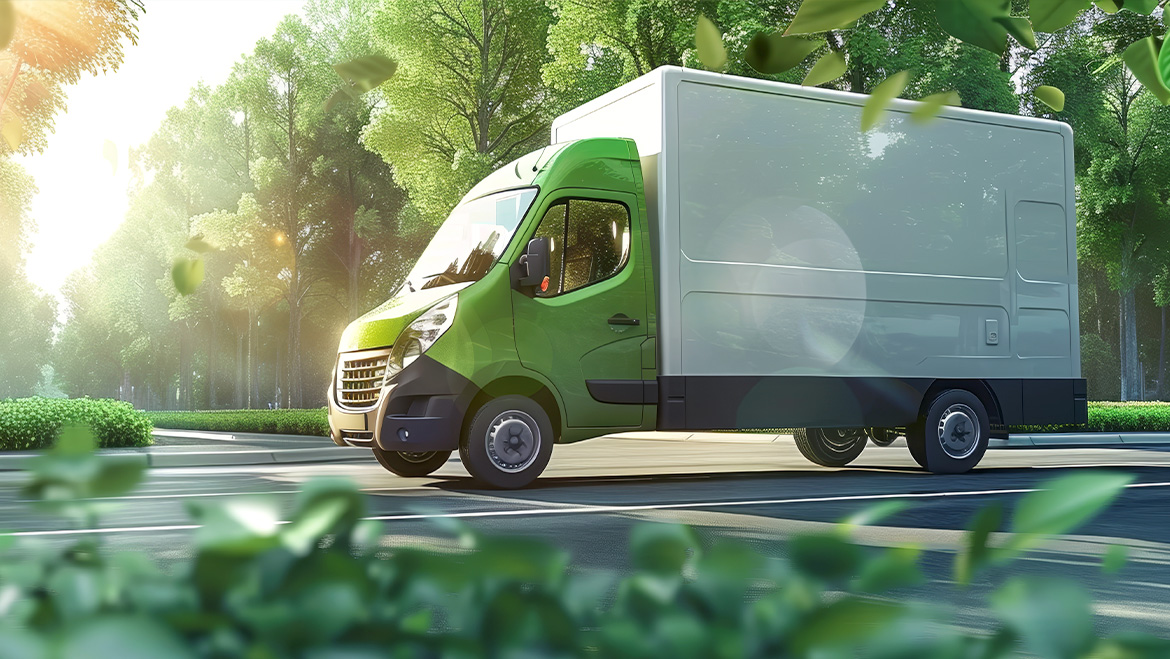EVs are already a common sight on today's roads. However, the transportation industry with vehicles ranging from vans to trucks still relies almost exclusively on combustion engines. According to Eurostat, commercial vehicles recently accounted for almost 40 percent of CO2 emissions in the transportation sector in Europe – a total of 304 million tonnes. In order to meet the sustainability goals, shifting towards e-mobility is the main challenge for the transportation industry in the coming years.
Simulation in vehicle development already plays a key role in the electrification of passenger cars and shows enormous potential for commercial vehicles as well. With virtual prototypes in simulation solutions such as CarMaker from IPG Automotive, development becomes more efficient and precise during this fundamental change.

Especially the last mile, where goods are transported to the end customer in small vans, offers a lot of potential for electrification. © Adobe Stock /AIRealms
Starting development: The last mile
The easiest way to implement the transformation in the transportation sector is on the last mile of goods in light commercial vehicles such as small parcel vans. This is because they usually cover short distances, have fixed charging times between shifts and travel around the city in a network of charging stations that is already being established. Implementation is possible with existing technologies. Vans can be simulated and tested directly in the CarMaker simulation environment from IPG Automotive. Developers can build on extensive experience for electric powertrains, for example with special factors influencing battery life and functions such as regenerative braking. Detailed urban scenarios provide the ideal test environment for this.
Shaping the future: On the highway
The electrification of long-distance trucks is a little further in the future, as it requires a different level of battery capacity and charging infrastructure. The TruckMaker simulation solution allows to shape the future already today. It not only enables range optimisation and an analysis of the influence of load distribution on several axles and trailers, but also the development of other applications such as the mandatory blind-spot assistant for detecting other road users or platooning – automated convoy driving.
The shift towards e-mobility is the main challenge for the transportation industry in the coming years. Simulation-based vehicle development with solutions from IPG Automotive makes it possible to lead the way and actively shape the future.
